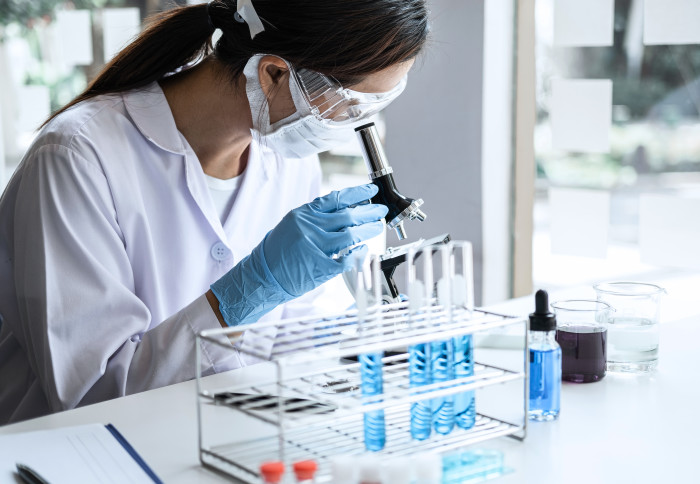
Global S&T Development Trend Analysis Platform of Resources and Environment
| Study identifies potential biomarkers for urine test for bile duct cancer | |
| admin | |
| 2021-11-15 | |
| 发布年 | 2021 |
| 语种 | 英语 |
| 国家 | 英国 |
| 领域 | 资源环境 |
| 正文(英文) | 

Early-stage research has found 10 metabolites associated with bile duct cancer which might one day help create a urine test to identify the cancer. The work is the result of a collaboration between Imperial College London and the Khon Kaen University in Thailand, who are working together to understand and reduce the disproportionately high rates of bile duct cancer in the Isaan peoples from the North-Eastern region of Thailand and Laos. The research is published in the journal Scientific Reports. In the UK, bile duct cancer is rare, with around two in every 100,000 people developing it, and the cause is unknown. However, in Thailand it affects more than 30 times that figure in the North-Eastern region alone (85 cases in every 100,000 people) with still higher figures across the river in Laos. “Early detection of bile duct cancer is vital as it is often symptomless." Professor Simon Taylor-Robinson President's Envoy for International Affairs In Thailand, bile duct cancers are associated with the O. viverrini parasite which may be inadvertently eaten in raw, partially cooked, or fermented fish dishes. The parasite enters the bile ducts and causes damage which can then lead to cancer. “Early detection of bile duct cancer is vital as it is often symptomless. This means it is often recognised late when it is hard to treat and surgery to remove the cancer is not possible. Other than surgery there are no currently effective treatments for bile duct cancer.” says Professor Simon Taylor-Robinson, senior author of the study, and Imperial’s Envoy for International Affairs. “As this cancer is hard to identify and treat early, in this study it was important to include participants in Thailand who are disproportionately affected. We are grateful to all the participants and to our partners in this collaboration, which we hope will one day lead to a quick, easy-to-use test to detect this cancer early and treat patients sooner,” he said. Hard to identify and treat earlyThe study included 34 participants from Thailand and 32 participants from the UK, including 14 participants with bile duct cancer in the Thai group and 10 in the UK group. The researchers note that the rarity of the cancer meant a bigger study wasn’t possible. The participants provided urine samples which were assessed using liquid chromatography mass spectroscopy - a technique that separates and detects molecular components in a sample. This allowed the researchers to identify the metabolites in the participants’ urine. While there were differences in the metabolites of the Thai and UK participants due to diet and weight, the researchers found 10 metabolites which appear to be related to the development of the types of cancers seen in both groups. This may indicate that the different forms of bile duct cancer act in the same way in the body, the scientists say. This could mean that any test developed using these metabolites could be used universally, if proven successful. The researchers say the next step of their research will be to create a test based on the metabolites, and see if it can accurately identify bile duct cancers in a clinical trial. This will also help them understand how the cancer develops. |
| URL | 查看原文 |
| 来源平台 | Imperial College London |
| 文献类型 | 新闻 |
| 条目标识符 | http://119.78.100.173/C666/handle/2XK7JSWQ/341529 |
| 专题 | 资源环境科学 |
| 推荐引用方式 GB/T 7714 | admin. Study identifies potential biomarkers for urine test for bile duct cancer. 2021. |
| 条目包含的文件 | 条目无相关文件。 | |||||
| 个性服务 |
| 推荐该条目 |
| 保存到收藏夹 |
| 查看访问统计 |
| 导出为Endnote文件 |
| 谷歌学术 |
| 谷歌学术中相似的文章 |
| [admin]的文章 |
| 百度学术 |
| 百度学术中相似的文章 |
| [admin]的文章 |
| 必应学术 |
| 必应学术中相似的文章 |
| [admin]的文章 |
| 相关权益政策 |
| 暂无数据 |
| 收藏/分享 |
除非特别说明,本系统中所有内容都受版权保护,并保留所有权利。
修改评论